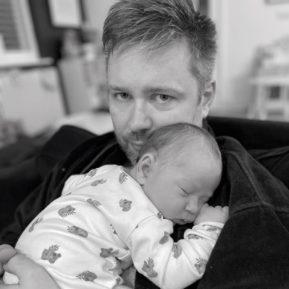I'm often asked 'Why is my baby waking for a long period in the night? If they're generally quite content and not initially in distress, then it can be something referred to as a ‘split night’. Let's find out what a split night is, why children have them and how you can help your child go back to sleep when experiencing split nights.
What is a split night?
A split night is when a baby or toddler wakes for a long period of time in the night, and often little ones aren’t upset during this wake. They may even chat to themselves or practice a new skill like clapping or crawling. Sometimes they do get grumpy after a while when they're fed up of being awake and want to get back to sleep.
What’s typically happening is their circadian rhythm (their body clock) and their sleep pressure (what makes them feel tired) is mis-aligned.
What causes split nights?
There are a number of things that can cause split nights and we'll discuss a few below:
Too much day sleep
This is quite a common cause of long periods of night waking. If your little one is getting too much sleep in the day they may simply not be as tired enough at night. Their body thinks bedtime is just another nap as they are sleepy, but they don't have enough melatonin (the ‘sleep hormone’) in their body to keep them asleep. It might be their naps are too long or they are ready for a nap transition.
There are some key clues that your little one is ready to drop a nap which I cover in full detail in my blog on nap transitions. If they're struggling to get to sleep at nap time, or they're pushing their nap times later and later, then it might be time to make a change.
Not enough day sleep
Not getting enough sleep during the day can cause restless nights. It’s not just split night but also multiple short night waking's that can improve when little ones have the right amount of day sleep. Overtiredness can be worse than too much sleep as it has a direct link to increased cortisol levels which is our ‘awake hormone’.
In the first few years of our babies and toddlers’ lives, cognitive and physical development is rapid, and quite frankly amazing! However their development can contribute to disrupted sleep. It’s unavoidable; in fact you wouldn’t want to avoid it as it all part of their advancement, but how you react to it is important (I’ll come onto that in more detail later).
Sleep associations such as a dummy, feeding to sleep, rocking/patting to get to sleep etc. can be causes of split nights, but these are more associated with frequent night waking's and little ones getting upset each time.
How to help a split night?
The first thing I recommend my client’s do is assess their little one’s day routine. Changing the day routine could be all you need to stop that long period of night waking.

One of the key parts of the day routine is ensuring there is the right gap between the last nap of the day and bedtime (the “wake window”). Make sure bedtime is a distinct process that helps your child know it’s night time. I personally bath my boys at the same time each night, then we have a story with milk and they get into bed.
Kids love consistency and routine. This triggers them to know that it’s night time, which is when their long sleep takes place. Make sure you pick a bedtime routine and time that suits your family and keep it consistent.
Another important thing to be mindful of is how to react when you little one wakes. If they don’t need your support, then hang back. Going into them will encourage them to think its play time. Keep a watchful eye on their monitor if you have one, but only offer support if and when they need it.
I remember when my youngest son first learned how to clap. He was so chuffed with himself that for a couple of nights he woke at 2am to practice his new skill. He happily clapped away for about half an hour before falling back to sleep. If we had reacted to him by going in and feeding him (he hadn’t had a night feed in months) or picking him up and rocking him back to sleep, he may have decided that that was something he needed in the future when he wasn’t actually looking for support – he just wanted to clap!
For further advice and support check out our other content in our parenting section.
Sign up today for unlimited access:
- Book appointments
- Expert advice & tips
- Premium videos & audio
- Curated parenting newsletters
- Chat with your bloss community
- Discounts & competitions
- Special events





Leave a Rating / Review
You must be logged in to post a comment.